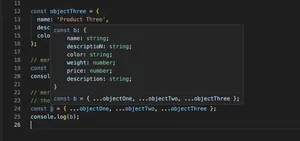Table of Contents
Overview
TypeScript, being a superset of JavaScript, inherits its behavior for global variables while also adding its typing system into the mix, thus offering a more structured approach. Globals in TypeScript can prove to be useful for values that need wide accessibility, yet careless use might lead to hard-to-maintain code. This tutorial is meant to help you master their usage conscientiously.
Understanding how to adequately manage global variables in TypeScript can substantially streamline your development process. This guide will walk you through the basics to advanced techniques of implementing globals in your TypeScript projects.
Declaring Global Variables
Starting with the basics, global variables in TypeScript can be declared outside of any function or class scope. Here’s how to declare a simple global variable:
let myGlobal: number = 10;
Note, however, that TypeScript’s strong typing discourages the use of global variables where module or class-based scoping can be used instead.
Augmenting the Global Scope
In TypeScript, you can extend the global scope by defining an interface in the global namespace, like so:
declare global {
interface Window {
myGlobalVar: number;
}
}
window.myGlobalVar = 10;
This illustrates how the window object’s typing has been expanded to include a new global variable.
Global Constants
Constants are a safer way of defining global values. They can be set once and cannot be altered, which mitigates the risk of accidental changes throughout the application:
const GLOBAL_NAME: string = 'Global Value';
Namespacing Global Variables
To avoid global namespace pollution, encapsulating your globals into namespaces can be an effective strategy:
namespace AppGlobals {
export const someValue: string = 'My Value';
}
console.log(AppGlobals.someValue);
This makes the global value accessible while preventing name collisions with similarly named globals.
Using External Global Variables
When using libraries that expose global variables, you can declare them to let TypeScript know about their existence. For example, if you are using jQuery, the $ global variable needs to be declared:
declare var $: any;
This is not recommended for comprehensive use due to the any type, but is acceptable for simple integrations.
Module Imports as Globals
A more contemporary approach to using globals is through module imports. TypeScript modules make use of import/export statements to manage dependencies:
import * as Utils from './utils';
Once imported, the Utils module functions can be accessed globally in the file.
Environmental Variables
Environmental variables are crucial for storing sensitive information such as API keys. These are generally stored in .env files and accessed via process environment:
declare const process: {
env: {
API_URL: string;
}
};
console.log(process.env.API_URL);
TypeScript will now be aware of the API_URL environmental variable.
Advanced Typing for Global Variables
For projects that require strong typing, assign proper types instead of using any:
declare var myLibrary: MyLibraryType;
Creating type definitions for all external global variables ensures consistency and takes full advantage of TypeScript’s capabilities.
Migrating from Globals to Modules
While global variables are convenient, they should be used sparingly. The modular approach offers better encapsulation and reusability. Refactoring global variables to module exports is a straight-forward way of improving code maintainability over time:
export const myRefactoredGlobal = 42;
With proper importing, the functionality remains constant, but the global scope is no longer impacted.
Debugging Global Variables
Developers should know how to verify and troubleshoot global variables. A bugged or misconfigured global can impact your entire application, and TypeScript’s type system can assist greatly in identifying the problem by type-checking the usage of your global variables throughout the application.
Conclusion
Global variables in TypeScript give us the power to access and modify data across modules and components, though they must be managed carefully to avoid common pitfalls like unexpected mutations or type issues. With TypeScript’s type system and scoping principles, you’ll be able to use globals judiciously and appropriately, resulting in cleaner, safer code.
